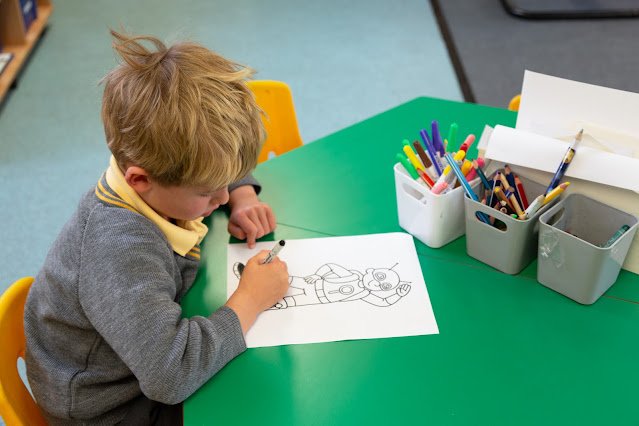Helping Your Children Identify & Express Their Emotions
With World Mental Health Day around the corner (Thursday 10 October 2024), Mr David Girvan, headteacher of The Firs School, Chester share his top tips on how we can support the health of the young minds around us.
As carers, one of our most important roles is to help our children navigate the complex world of emotions. This is something that we do in partnership with our families and all the teaching staff at The Firs. We believe that education is much more than about academia, it is about setting up our children will all the skills they require to thrive in life, and this includes teaching children to identify and express their emotions in a healthy way which is essential for their social, emotional, and mental wellbeing.
Here are some tips from the team here at The Firs School, on how to help your children identify and express their emotions:
Foster an environment where your children feel safe and supported to express their feelings. Let them know that all emotions are valid, listen to them when they express themselves and try not to label them as good or bad. Our whole culture and setting at The Firs is based on promoting positive behaviour and curiosity. We do not expect our children to be perfect but rather growing individuals who constantly learn and develop as a whole and become happy confident individuals, and it is our role to provide the environment in which they can flourish. We have called it The Firs Way, but the principle remains the same, nurturing this supports that it's okay to talk about how they feel.
Use age-appropriate language:Tailor your language to your child's age and level of understanding, using simple and clear language to help them identify different emotions. You can use books, drawings, or role-playing to illustrate emotions and their expressions, and in educating them about their emotions you are helping them better express themselves. We regularly have visits from Thomas the therapy dog, who works with selected children who really feel the benefit of this interaction, over other ways of expressing how they are feeling.
Encourage open communication:
Create opportunities for your children to express their emotions. Encourage them to talk about how they feel without fear of judgment or criticism. By understanding why they felt that emotion, or why they chose to react a certain way, they can better understand themselves. All classes at The Firs have ‘Chatterboxes’, a post box where children can write a message to their teacher asking for a chat about anything they wish, whether it is something that is worrying them or something positive that has happened.
Model emotional expression:
Children learn by example, so it's important for parents to model healthy emotional expression. This doesn’t mean that you must watch what you say and do with a perfect response lined up, but let your children see you express your own emotions in a constructive way, whether it's talking about your feelings, taking a break to calm down, or seeking support when needed.
Teach emotional vocabulary:
Help your children build a vocabulary of emotions. Teach them words to describe what they are feeling, such as happy, sad, angry, frustrated, or anxious. This can help them articulate their emotions more effectively.
Validate their feelings:
Let your children know that it's okay to feel a range of emotions. Validate their feelings by acknowledging and accepting what they are experiencing. “I know that you are disappointed that we ran out of biscuits, I am too.”
Teach coping strategies:
Help your children develop healthy coping strategies for managing their emotions. This could include deep breathing exercises, physical activity, or engaging in creative activities but brainstorm these activities with your children as what works best will be individual to them. At The Firs, we recognise the huge importance of the outdoor environment in promoting positive mental health, providing stimulating outside resources and own dedicated Firs Forest teacher who provides the children with opportunities to enjoy the open air.
Encourage empathy:
Teach your children to be kind and empathetic towards others by recognising and understanding other people's emotions. If they understand the feelings in themselves, then they can better understand them in others too, supporting their development of better social skills and relationships.
Be patient and supportive:
It's important to be patient and supportive as your children learn to identify and express their emotions. Ask yourself, what are they really saying to me with this tantrum, for example? Disappointment? Overwhelming? Encourage them to express themselves and help them define it with reassurance and guidance along the way.
Seek professional help if needed:
If you notice persistent challenges in your child's ability to identify or manage their emotions, consider seeking professional help from someone who specialises in working with children. Our learning mentor, Gaynor Warrington, is the first port of call for any of our children who would like to chat about anything that may be worrying them. Her role is to actively promote the mental health of our children, and she works closely with our families to do so.
By helping your children identify and express their emotions, you are equipping them with essential life skills that will serve them well into adulthood and that is ultimate aim, a future of healthier relationships, improved self-esteem, and better overall mental health for everyone.

.jpg)


Comments
Post a Comment